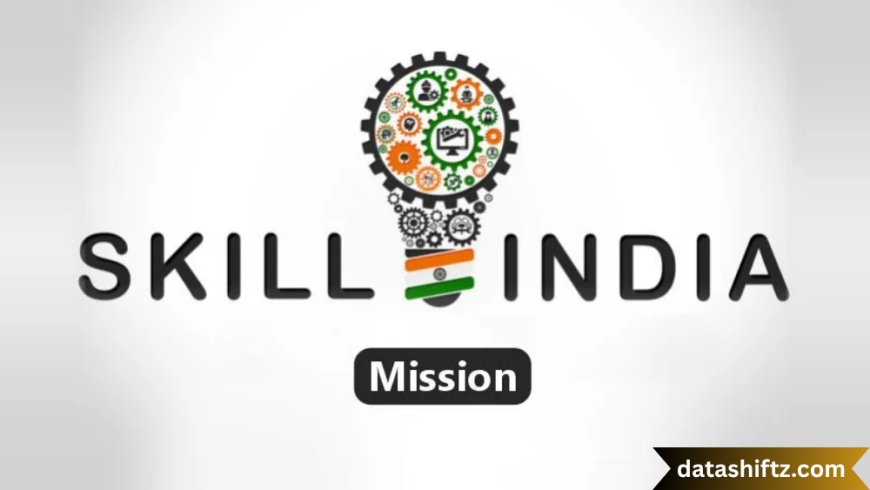Skill India: Empowering a Nation Through Workforce Development

Introduction:
The Urgency of a Skilled India
India, with its demographic advantage, stands at a unique crossroad. Over 65% of its population is under the age of 35, making it one of the youngest countries in the world. However, this youth dividend can only be capitalized upon if the population is equipped with the right set of skills. Recognizing this need, the Government of India launched the Skill India Mission in 2015, aiming to train over 400 million people in various skills by 2022 and beyond. This ambitious initiative intends not only to bridge the gap between demand and supply of skilled workforce but also to make India a global hub for skill-based work.
This article delves deep into the objectives, components, success stories, challenges, and future potential of the Skill India Mission. It also presents structured insights through tables and lists for easy understanding.
Overview of Skill India Mission
What is Skill India?
Skill India is a flagship campaign of the Indian government launched by Prime Minister Narendra Modi on 15th July 2015. It focuses on equipping Indians, particularly the youth, with skills that are relevant to the job market—be it in manufacturing, services, or entrepreneurship.
Key Objectives of Skill India
-
Enhance Employability: Train youth in market-relevant job skills.
-
Promote Entrepreneurship: Encourage self-employment and startups.
-
Reduce Skill Gaps: Match the supply of labor with industry demand.
-
Standardization: Ensure skills are certified and recognized nationally and internationally.
-
Inclusive Growth: Reach underprivileged and rural sections of society.
Key Components of Skill India
Skill India is not a single program but a conglomeration of several initiatives and schemes. Each program targets different sectors, regions, or types of skills.
Major Schemes Under Skill India
| Scheme | Launched By | Objective |
|---|---|---|
| Pradhan Mantri Kaushal Vikas Yojana (PMKVY) | Ministry of Skill Development | Free skill training, with assessment & certification |
| National Skill Development Corporation (NSDC) | Public-Private Partnership | Funding & supporting vocational training centers |
| Skill Loan Scheme | Ministry of Finance | Financial support for vocational education |
| SANKALP | World Bank-supported | Skill development through district-level planning |
| STRIVE | Ministry of Skill Development | Improving industrial training institutes (ITIs) |
| Deen Dayal Upadhyaya Grameen Kaushalya Yojana | Ministry of Rural Development | Rural youth skill development |
Features of Skill India Mission
-
Focus on industry-relevant curriculum.
-
Training aligned with National Skill Qualification Framework (NSQF).
-
Recognition of Prior Learning (RPL) for informal workers.
-
Provision of digital literacy training.
-
Entrepreneurship education through special modules.
-
Public-private partnerships with leading corporates.
-
Use of technology platforms like Skill India Digital.
Impact and Achievements of Skill India
Statistical Overview
| Parameter | Achievement (as of 2024) |
|---|---|
| Youth trained under PMKVY | Over 1.5 crore |
| Skill centers set up | 15,000+ |
| NSDC-approved training partners | 500+ |
| Total job placements facilitated | 50+ lakh individuals |
| States with highest training | Uttar Pradesh, Maharashtra, Tamil Nadu |
Case Studies and Success Stories
-
Sangeeta from Bihar, trained in hospitality under PMKVY, now works at a 5-star hotel in Mumbai.
-
Raju from Telangana, after completing a mobile repair course, runs a successful mobile service center.
-
Women Self-Help Groups in Odisha, trained under DDU-GKY, have launched textile and handicraft startups.
Industry Collaboration and Innovation
Corporate Involvement in Skill India
Many leading Indian and multinational companies have partnered with Skill India to set up training labs, provide internships, and recruit certified individuals.
| Company | Sector | Initiative |
|---|---|---|
| TATA Motors | Automotive | Automobile technician training |
| Larsen & Toubro | Construction | Site safety and engineering modules |
| Microsoft India | IT & Digital | AI & cloud training in Tier-2 cities |
| Maruti Suzuki | Manufacturing | Plant-based skilling programs |
| Bosch Foundation | Industrial Skills | Technical apprenticeships |
Role of Startups and EdTech
EdTech platforms like Skill-Lync, Simplilearn, UpGrad, and NSDC’s eSkillIndia provide courses in:
-
AI/ML
-
Cybersecurity
-
Web Development
-
Graphic Design
-
Data Analysis
Challenges Faced by Skill India
Despite its noble goals and some real success stories, Skill India also faces significant challenges:
Structural and Implementation Issues
-
Mismatch between skills and industry needs.
-
Low placement rates post training.
-
Poor infrastructure in rural training centers.
-
Inconsistent quality control across centers.
-
Lack of awareness among youth, especially in remote regions.
Societal and Cultural Hurdles
-
Preference for degrees over skill certification.
-
Gender gap in participation, especially in certain trades.
-
Language barriers in course delivery and content.
The Road Ahead – Strengthening the Skill India Mission
Recommendations for a More Robust Future
| Focus Area | Suggested Action |
|---|---|
| Industry Alignment | Update curricula regularly with industry feedback |
| Digital Skills | Integrate future skills like AI, robotics, blockchain |
| Women Participation | Special initiatives to encourage women in tech/skilled trades |
| Quality Control | National accreditation body for all centers |
| Awareness Campaigns | Use of influencers, local leaders to spread awareness |
Emerging Skill Trends to Watch
-
Green Jobs – Renewable energy technicians, solar panel installers
-
Healthcare – Telemedicine assistants, health tech workers
-
Logistics – Supply chain and warehouse management
-
Cybersecurity – Ethical hacking, network defense
-
E-commerce – Digital marketing, customer service automation
-
AI & ML – Applied AI in healthcare, fintech, and education
-
Agritech – Smart farming equipment operators, data-driven agriculture
Conclusion:
Skill India – Transforming Potential into Performance
The Skill India Mission is more than a government scheme—it is a vision for a self-reliant India. In a rapidly changing world where traditional education no longer guarantees employment, skill-based training is the only sustainable answer. From rural artisans to urban engineers, from high-tech AI specialists to local entrepreneurs, Skill India seeks to unlock the potential of every Indian.
To truly make India the skill capital of the world, efforts must continue with greater vigor—addressing challenges, strengthening partnerships, and continuously adapting to the evolving job landscape. The mission is clear: Empower the individual, strengthen the economy, and build a skilled nation.




























